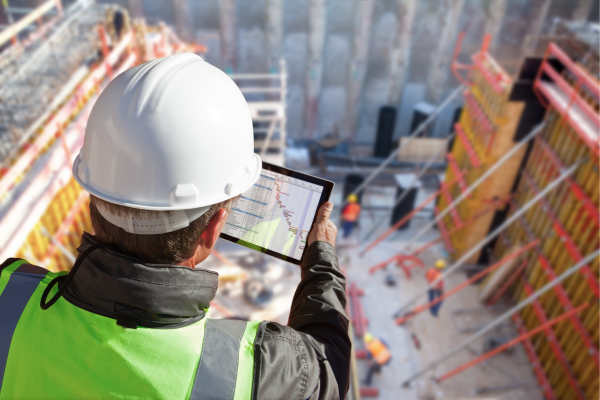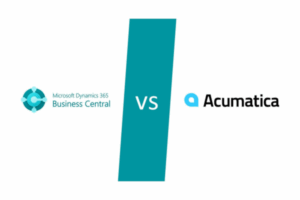Why Construction Businesses Need an ERP
Imagine you’re building a new community of homes. The timeline is tight, the budget is strict, and your team needs to communicate constantly to keep everything on track. Now, let’s say your project manager is using one program to schedule work, your accountant has another for finances, and your field team is working off text messages and printed plans. It’s like trying to conduct an orchestra without a sheet of music. An ERP system acts as that “sheet of music”—keeping everyone on the same page and every bit of information in one place.
For construction companies, an ERP isn’t just another app to learn; it’s a way to avoid costly mistakes, save time, and keep everyone from the office to the field connected. You’ll spend less time fixing miscommunications and more time doing what you do best—building.
What Should You Look For in a Construction ERP?
Every ERP isn’t the same. Some are like a Swiss Army knife, with tools for everything, while others are more like a single tool made to do one thing really well. Here’s what you should keep an eye out for when choosing an ERP for construction:
- Project Management: You’ll want an ERP that keeps track of every part of a project—scheduling, resources, timelines, budgets, and more. Think of it as the project blueprint, but with live updates.
- Job Costing: You don’t want any surprises at the end of a project. The right ERP should help track costs in real-time so you know where the money’s going and can catch any overruns before they get out of hand.
- Mobile Access: Construction doesn’t happen in an office, so your ERP should be easy to use on a tablet or smartphone. This way, the team on-site can update info as things happen, keeping everyone in the loop.
- Accounting and Financials: A solid ERP system ties all your numbers together—expenses, invoices, payroll, and more. This feature means your financials aren’t a mystery when tax season rolls around, and your cash flow is easier to understand.
- Scalability: If you’re planning to grow, pick an ERP that can grow with you. You don’t want to outgrow it in a year and go through the hassle of switching again.
Top ERP Choices for Construction Companies
Here are some well-known ERP systems in construction and what makes each stand out. Remember, these aren’t recommendations but options to consider. Our team at Alchemy 365 knows ERP like the back of our hand, so feel free to reach out with any questions you might have.
1. Procore
Imagine Procore as the friendly project manager you wish you had—one that keeps everything from schedules to budget tracking in check. It’s built just for construction, so every feature is tailored for fieldwork and project collaboration. If you’re a smaller company looking for a straightforward solution to get everyone on the same page, Procore could be a solid choice.
2. Sage 300 Construction and Real Estate (CRE)
Sage 300 CRE is more of an accountant’s dream—it’s all about the financials. If your main focus is managing your money flow and job costs, this ERP is well-equipped. However, it might not be as strong in project collaboration, so think of it like hiring an expert accountant for your team but needing a few extra tools for project tracking.
3. CMiC
CMiC is like having a mix of both worlds: strong in financials and powerful in project management. It’s flexible, so whether you’re a smaller team or a growing business, CMiC can handle a lot. It’s a bit of a “do-it-all” system, which can be handy if you want a single system to cover many areas.
4. Microsoft Dynamics 365 Business Central
Microsoft Dynamics 365 Business Central is a highly flexible ERP, often likened to a chameleon because it can adapt to many industries, including construction. It has powerful financial and project management features and is designed to scale with your business. However, for construction companies, getting it “construction-ready” can take some customization work.
That’s where Alchemy 365 comes in. We’ve taken Microsoft Business Central’s core and enhanced it to meet the unique needs of construction. Think of it as taking a strong foundation and building exactly what your business needs on top of it. Alchemy 365 offers tools tailored for managing construction projects, tracking costs, handling payroll, and keeping everyone connected from the field to the office. So, instead of starting from scratch, you get an ERP solution that’s already aligned with the challenges and workflows you face every day.
In short, Microsoft Dynamics 365 is like the framework, and Alchemy 365 is the customization that makes it truly work for construction. It’s flexible, easy to scale, and grows with you, offering a solid foundation plus the tools you need to tackle the real-world tasks of running a construction business.
Picking the Right ERP for Your Business
Choosing an ERP is a bit like choosing a house. You wouldn’t just pick the first one you see; you’d want to walk through, check out the layout, and make sure it has the right number of rooms for your family. Same with an ERP—you’ll want to take a good look at how each system works, what it offers, and whether it matches your needs today and a few years down the road.
Ask yourself: What’s my biggest pain point? Is it job costing, keeping track of everything on-site, or handling payroll? Look for the ERP that makes those areas easier. If it helps, picture how much smoother things could run with the right system in place.
Wrapping It Up
An ERP can be a game-changer for your construction business. It keeps all the details—big and small—connected in one place, making it easier for you to manage, grow, and avoid those little mistakes that add up over time. While no ERP will make every problem vanish, the right one can save time, money, and plenty of headaches.
At Alchemy 365, we’re here to help you figure out if an ERP is the right step for you. You don’t need to jump in without understanding what you’re getting. After all, we’re just like you—here to solve problems in the simplest, smartest way possible. If you’d like to talk more about how Alchemy 365 might fit into your business, just reach out; no strings attached.





